Kraven the Hunter
 for strong bloody violence, and language.
for strong bloody violence, and language.
Reviewed by: Michael Karounos
CONTRIBUTOR
| Moral Rating: | Very Offensive |
| Moviemaking Quality: |
|
| Primary Audience: | Adults |
| Genre: | Sci-Fi Action Adventure |
| Length: | 2 hr. 7 min. |
| Year of Release: | 2024 |
| USA Release: |
December 13, 2024 (wide release) DVD: March 4, 2025 |
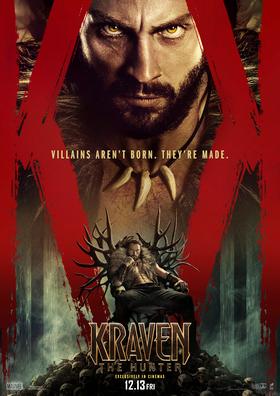

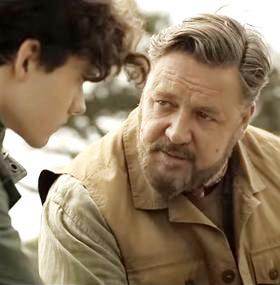


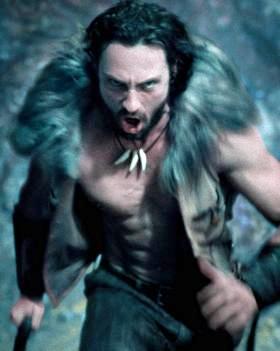
Effects of viewing brutal, graphic violence
Use of foul and profane language in films

THE OCCULT—What does the Bible say about it?

Film based on comic book series
Sony Spiderverse
Russian immigrant
Big game hunting
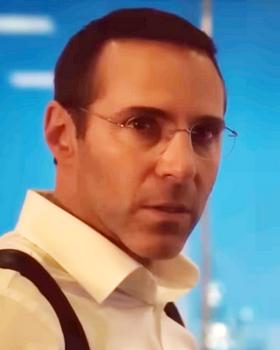
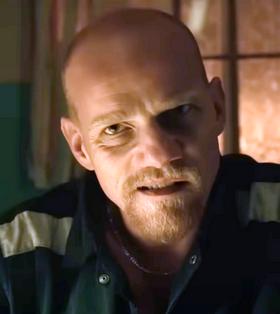

| Featuring |
|---|
|
Aaron Taylor-Johnson … Sergei Kravinoff / Kraven Russell Crowe … Nikolai Kravinoff, a ruthless crime lord Fred Hechinger … Dmitri Smerdyakov / Chameleon Ariana DeBose … Calypso Ezili, a voodoo priestess Christopher Abbott … The Foreigner Alessandro Nivola … Aleksei Sytsevich aka ‘The Rhino’ Levi Miller … Young Sergei See all » |
| Director |
|
J.C. Chandor |
| Producer |
|
Marvel Entertainment Avi Arad Productions See all » |
| Distributor |
“Kraven the Hunter” is the latest in a series of Sony’s Spider-Man Universe spinoff movies. The previous spinoffs (Venom, Morbius, and Madame Webb), have all been considered failures and the majority of the reviews at Rotten Tomatoes consider Kraven a failure as well. I side with the minority who think the movie is worth seeing with the very stringent provisos that: 1) you are able to handle vulgarity and profanity; 2) you can handle grisly violence; and 3) you are not sensitive to use of the occult (mild though it is).
Even with all those qualifications the movie is average, at best, for its genre. The only reason I can recommend it is that those of us who still want to see a Marvel or DC movie that reflects the imaginative expressions of our youth are desperate for even a mediocre production after eight years of woke Raiders, woke Star Wars, and woke Marvel movies. The latter were especially egregious in their race-pandering by replacing Captain America, Iron Man, and Thor with black characters and the Black Panther with a “Lady” Black Panther.
The stories were ill-served, the actors were ill-served, and the audience was ill-served. Imagine if they had created original characters —like the Black Panther or Luke Cage—that were genuinely Black and original? Those of us who are fans knew what a terrible idea race-swapping was.
But they did not create new characters, and the same people who scream about “cultural appropriation” scream “racism” when the audience doesn’t applaud their own cultural appropriation. Those of us of a certain age remember the “Blaxploitation” films of the 70s which featured great male and female leads like Richard Roundtree as Shaft and Pamela Grier as Coffy playing authentic Black characters in gritty, realistic settings. Those movies are inappropriate for this audience, but they are far better than the politically correct pablum served in recent years.
However, in the magical wake of President Trump’s reelection, even people on the left are acknowledging the error of race-swapping iconic roles. Filmmaker Kabir Chibber could never publish an article entitled “Is the Awkward ‘Diversity Era’ of Hollywood Behind Us?” as he recently did in the NYT Magazine (12/4/24).
All of that is just to say that Kraven is almost woke-free, but first, a brief word about the plot without spoilers.
The story opens with Kraven on a transport to a prison in Siberia. He completes the mission there and returns to his home and to memories which segue into a prolonged origin story flashback. We see the young, Sergei, and his brother, Dimitri, as they are bullied by their Russian gangster father, Nicolai. They go on a hunting trip where a fateful accident changes Sergei biologically into a hybrid human with the strength and speed of a lion. He breaks free of his father’s influence and leaves home to discover himself.
The movie returns to the present day and Kraven—who is a villain and a murderer in the comics—has become an altruistic assassin killing Russians who are weapons and drug dealers. One can’t help but feel that the narrow and selective emphasis on evil Russians has to do with Hollywood’s slavish support of Ukraine. They are bad guys and one doesn’t feel too sorry for them, but the violence is unnecessarily graphic in order to earn an “R” rating, a first for a Sony movie in this series. The addition of multiple, unnecessary, and gratuitous uses of the “F” word by Calypso are also jarring and unconvincing. They could have left out all the explicit violence, profanity, and blasphemy and the movie would have been better for it. Moreover, it would have made more money as young teens would have been allowed to see it.
The reason that Aristotle wisely prescribed 2400 years ago to not show explicit violence was not only because it is shocking, gross, and offensive, but because it lowers the moral sensibility of the viewer who has to internalize the garbage he hears and sees. The one thing positive Chandor does is not display any sexuality or nudity.
As Kraven proceeds on his mission of killing global bad guys he is joined by Calypso who, in her role as a lawyer in pursuit of “justice,” is able to use her contacts to provide Kraven information that leads to confrontations with the Rhino (Alessandro Nivola) and the Foreigner (Christopher Abbott). A lot of chases and globe-hopping ensue until the inevitable resolution when Kraven defeats his enemies. That is pretty much all that can be said without revealing minor plot turns.
Characters
This may be a controversial take on my part, but I think the success of Ryan Reynolds’s profanely funny Deadpool character has done more to discredit the superhero archetype than any other factor. Scriptwriters saw how his comedic delivery made people laugh and wrote similar lines for characters in other movies to get the same laughs. But other actors are not Ryan Reynolds. That attempt is what transformed Thor into a buffoon in “Thor: Love and Thunder” (2022). It is the biggest self-own in the entire Marvel Universe and a terrible movie. Similarly, the Deadpool movies are exercises in degrading nonsense that don’t rise much above the pre-adolescent humor of flatulence jokes. Such characters (and entire movies) are what film critic Christian Metz called “parodies of the conventions.”
In Kraven, the characters of Rhino and the Foreigner are parodies of villains. They lack gravitas and diminish the moral worth of human life with juvenile humor. Both smirk and joke about grisly deaths that should have been treated seriously so the audience could take them seriously. As filmed, the audience is disaffected from the act of murder because the people killed are not given worth. This is immoral in addition to being bad art. The tonal dissonance completely ruins the suspension of disbelief as who wants to invest emotional capital in truly terrible characters or victims one can not identify with?
Heath Ledger’s Joker, by definition, made jokes but he was always deadly serious and remained in character which Alessandro Nivola (Rhino) and Christopher Abbott (Foreigner) do not as the script is written. The juvenile snark makes their characters fatuous and, though deadly, not worthy of our respect or satisfaction as a movie-going experience. Russell Crowe on the other hand remains in character. Reviewers criticize his fake Russian accent but that’s not his fault. Chandor should have gotten an actor that fit the part instead of trying to artificially boost the name recognition of the movie.
Calypso, played by Ariana DeBose, has a similar problem in that the writers (a committee of three) turn her into a girl-boss. She drops multiple “F” words and orders Kraven around condescendingly. The audience is informed in a heavy-handed manner that she is one of the “best investigative lawyers in her global firm.” The honors attributed to her are mostly unearned as they are communicated primarily through exposition.
In my opinion, the inclusion of her character as written was a mistake. For one thing, in the comics her character is absolute evil, not good. That seems an important distinction, doesn’t it? To make her a lawyer in pursuit of “justice” is the exact opposite of her role as a voodoo priestess in the comics. A corporate lawyer is not physically intimidating; a voodoo priestess is. Her role in the movie as a near peer reduces the authority and impact of Kraven and takes away valuable plot space. What could have been a powerful and memorable cameo role full of mystery and menace is turned into a weak supporting role. Kraven’s impact also suffers as a result.
Fred Hechinger does a good job portraying the bullied younger half-brother, Dimitri. He, Taylor-Johnson, and Crowe are the only actors whose roles were written for consistent effect. Dimitri’s transformation at the end of the movie was believable both as acting and as the logical conclusion to a realistic character arc.
Finally, Aaron Taylor-Johnson did a good job in the title role. His performance was hurt by poor CGI and by having to affect a flat American accent which some reviewers criticized. If I’m not mistaken, although the boys attended school in the States, the father lived in London. Chador should have let Taylor-Johnson deliver his lines in his native English accent. It would have made for a more interesting character.
Themes
The sly emphasis on social justice using poor Ariana DeBose as a woke cutout is annoying. Why do directors and writers feel the need to parade their politics in a movie meant to entertain? DeBose is unconvincing as a lawyer and loses any differentiation as a character by having to be a token Black person which robs the actor of the opportunity to actually act. Liberal Hollywood has done POC actors a great disservice in forcing them into stereotypical roles to promote a liberal agenda. Compare Samuel Jackson’s unique turn in “Pulp Fiction” to any Black role written in the last 10 years and you will understand the point I’m trying to make. Jackson’s character was an individual first and “black” second. What every actor aspires to is to create unique individuals. That is art. What POC actors in these recent franchises are forced to be is two-dimensional cutouts. That is propaganda. Given the artificial constraints, they are not able to do their best work and their reputation suffers as a consequence.
Summary
Kraven is not a “good” movie but it is a passable superhero movie for an audience that craves one without the racial, feminist, gay, and transgender pandering that has permeated films in recent years. The pressure to do such scenes must be immense as no actor seems to be immune. Even Denzel Washington (!) kissed Paul Mescal on the lips for Gladiator II and then complained in an interview that Ridley Scott (wisely, I might add) cut the scene out. Aside from the understated wokeness of Calypso’s character, Kraven dodges that pothole.
Predictably, my biggest problem with the movie is that did not adhere to the original characters. Kraven’s aristocratic family fled Russia after the 1917 October Revolution which left him bitter and hateful of both communists and capitalists:
“There was no more room in Russia for aristocrats. For culture. For honor. For human dignity. But all those things were bred in my bones, long before the Trotskys and Lenins dragged my homeland into the pit” —Kindle Loc 318
If the director and the writers were able to use that information to motivate the character instead of making the father (who died depressed) into a second rate weapons dealer it would have made a better movie and better roles for Crowe and Taylor-Johnson. If they had made Kraven a philosophical, self-aware villain who knew he was bad and struggled morally with his character flaw, and allowed Calypso to be the evil voodoo priestess that she is, and perhaps added a good character to complete the moral dynamic, it would have made for an interesting exercise in ethics.
At the end of the series, Kraven undergoes a spiritual conversion (ASM #294) in which he relinquishes his hatred and recognizes Spiderman’s humanity. Kraven imagines himself killing the spider within:
“I turned my back upon this corrupted world… this sewer that dares to call itself civilized!… and I turned to the primal; to the unsullied. To the jungle. How mad… how paradoxical!… to find dignity and honor, sanctity and civilization, in that which most men would call uncivilized!” —Kindle Loc 414
The contrast between the primal and the civilized is a Nietzschean theme from Beyond Good and Evil in which “barbarians” (the primal), and “men of prey” (the hunter) attack the weak:
“Let us acknowledge unprejudicedly how every higher civilization hitherto has ORIGINATED! Men with a still natural nature, barbarians in every terrible sense of the word, men of prey, still in possession of unbroken strength of will and desire for power, threw themselves upon weaker, more moral, more peaceful races…” —Beyond Good and Evil
Later, as Kraven is helping Spiderman to walk, he thinks to himself:
“A good man, I think. How strange that I haven’t been able to see that till now! No matter. I do see; and seeing, Spider-Man, I thank you. And I bless you.” —Kindle Loc 426
The word and action of blessing is a holdover from the Kravinov’s Orthodox Christian background. After Spiderman leaves, Kraven goes into another room where there is a coffin. The diptych panel with Kraven’s mansion on the left and Spiderman’s tomb on the right suggests that he has buried his fear (the spider within) and now he will bury himself:
“How calm I feel; how peaceful. As if something inside me—some knot, some tangle of fear and anger and so much more, has been finally untied.” —Kindle Loc 428
At peace at last, no longer a beast nor a killer, Kraven commits suicide.
Now, wouldn’t that have made a great movie?
Footnote: The six book narrative between Spiderman and Kraven can be found in these issues: “Web of Spider-Man” #31–32, “The Amazing Spider-Man” #293–294, and “Peter Parker, the Spectacular Spider-Man” #131–132. They are collected in paperback editions and can also be viewed online with a free 7 day subscription to Comixology under the title “Kraven’s Last Hunt.”
- Violence: Extreme
- Profane language: Extreme
- Vulgar/Crude language: Extreme
- Drugs/Alcohol: Very Heavy
- Occult: Very Heavy
- Wokeism: Mild
- Nudity: None
- Sex: None
See list of Relevant Issues—questions-and-answers.


PLEASE share your observations and insights to be posted here.

